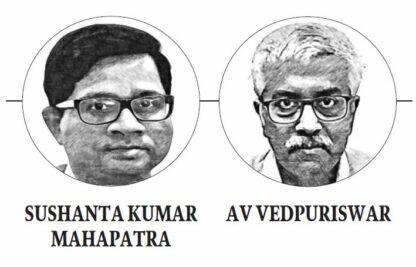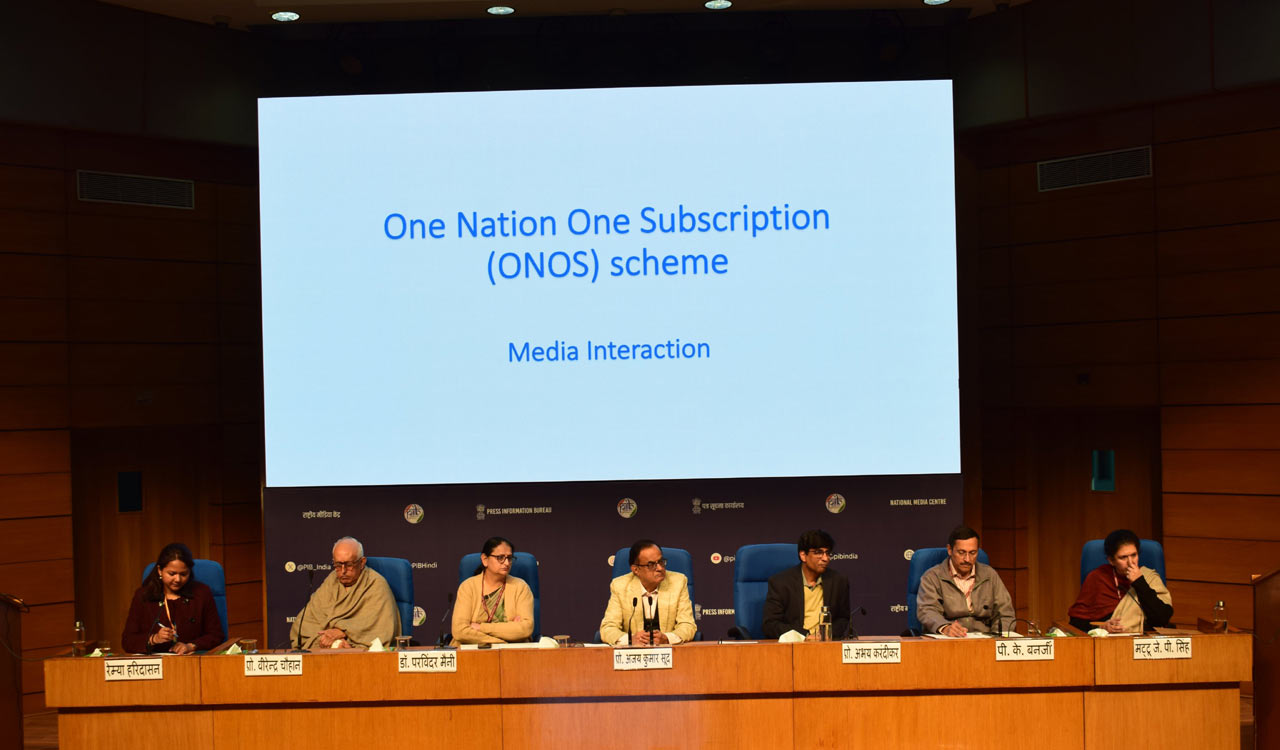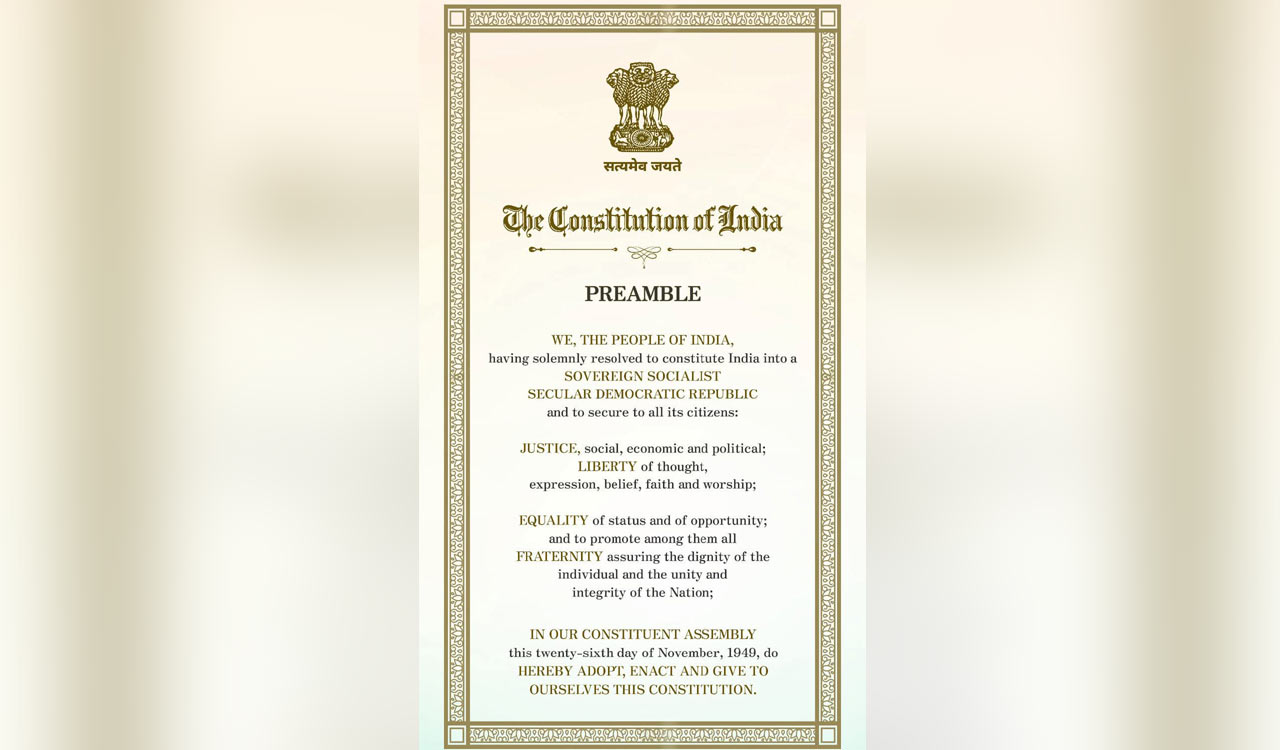Opinion: Good and bad of institutions
As long as political institutions favour only the elite and neglect the general public, they will face credibility issues

By Sushanta Kumar Mahapatra , AV Vedpuriswar
The Sveriges Riksbank Prize in Economic Sciences in Memory of Alfred Nobel 2024, awarded to Daron Acemoglu, Simon Johnson and James A Robinson, reflects that out of the Americans who have been awarded the Nobel Prize in Economics since 2000, around 28% are immigrants to the US. However, it is important to note that they have the same opinion about the role of institutions in a country pertaining to its economic development.
The laureates found that the persistent gap between the rich and poor countries is because of the institutions of the societies of those countries. While assessing the importance of institutions for the prosperity of a country, they revealed that weak laws and institutions of society hinder the growth of the country thereby limiting the chance of improving the living condition of the population.
Two Aspects
They broadly discussed two aspects of the institutions: first, they evaluated the importance of institutions for the progress of a society or country, and second, they discussed the reason behind the change in political institutions. As defined by them, economic institutions or inclusive institutions enforce property rights for a large group of the population, provide opportunities for investments and enable various sections of people to participate in economic activities. Good political institutions give more power to the people to participate in the role of governance and support the purpose of democracy. Also, good political institutions play a crucial role in shaping economic institutions.
On the other hand, bad or extractive institutions lack the essential rule of law for the population and don’t have proper property rights. When political powers are controlled by narrowly defined elite groups, it results in the formation of extractive institutions.
Rules and Policies
A comprehensive study of the era of colonisation can be considered as a natural experiment to find details of institutional rules and policy changes. When the Europeans started their colonies in various parts of the globe, either they changed the institutions of those societies or influenced those societies resulting in change in the institutions. However, the change varied along with the colonies and the original society existing in that place. The regions, where the colonisers formed inclusive political and economic institutions for their own long-term benefits, changed for the better.
When political powers are controlled by narrowly defined elite groups, it results in the formation of extractive institutions
Contrary to that, in some countries, the colonisers only aimed at exploiting the natives and capturing the resources of these countries. They used an extractive economy to gain short-term benefits as they had control over the indigenous population. Although there was progress for some time in those regions, later the living standards of the people deteriorated remarkably. Hence, institutions play a decisive role in influencing many features of the country, like education, profession of people and the political system.
Influencing Factors
There are many influencing factors that decide the type of institutions that develop in any colony. Population density is one of the key aspects — the denser the population of a region, the stronger the resistance of the people against the formation of any kind of new institution. Hence, less number of European settlers moved to that place. While in the sparsely populated places, the Europeans were able to dominate the natives and their resistance.
Places, where resources were plenty, the colonisers developed such institutions so that they could exploit the local people and extract resources. The main aim was to provide benefits to a few elites of the places to take advantage of the maximum number of people living there. As a result of control over democratic rights of election and political rights, these extractive economic institutions became the reasons for the declining social and economic standards of the people.
The places that used to be rich and prosperous before the phase of colonisation declined in various aspects and now are among the poorest countries in the world. Compared to that, the places that were less densely populated and poor at that time became the preferred choice for the colonisers to start inclusive economic institutions which they had planned for their long-term benefits and eventually resulted in the prosperity of the country.
Extractive Institutions
Contrary to the popular notion that the countries nearer to the equator are poorer because people are less productive in these areas than the people of the countries with temperate climates, the laureates have found that it is the societal institutions of these countries that are responsible for productivity. Also, the approach of colonising nations in the colonies became another factor deciding the kind of institutions developed in those places.
Extractive institutions are beneficial only for a small elite group. However, the introduction of a maximum number of inclusive institutions and the rule of law is capable of creating long-term benefits for everyone in society. When political institutions prioritise the interests of only a select elite while neglecting the general public, they undermine their own credibility, resulting in erosion of public trust in economic reforms. Sometimes populations of non-democratic countries take revolutionary ways to transition to democracy. The ways can be violent or peaceful. However, peaceful protests involve the largest number of people.
As the model developed by the laureates explains, there are compelling reasons why some countries switch from democracy to non-democracy and vice-versa.

(Sushanta Kumar Mahapatra teaches at the Department of Economics, ICFAI School of Social Sciences, ICFAI Foundation for Higher Education, Deemed University, Hyderabad. AV Vedpuriswar is an independent researcher based in Hyderabad)
Related News
-
Cartoon Today on December 25, 2024
2 hours ago -
Sandhya Theatre stampede case: Allu Arjun questioned for 3 hours by Chikkadpallly police
3 hours ago -
Telangana: TRSMA pitches for 15% school fee hike and Right to Fee Collection Act
3 hours ago -
Former Home Secretary Ajay Kumar Bhalla appointed Manipur Governor, Kerala Governor shifted to Bihar
3 hours ago -
Hyderabad: Organs of 74-year-old man donated as part of Jeevandan
3 hours ago -
Opinion: The China factor in India-Nepal relations
3 hours ago -
Editorial: Modi’s Kuwait outreach
4 hours ago -
Telangana HC suspends orders against KCR and Harish Rao
4 hours ago




